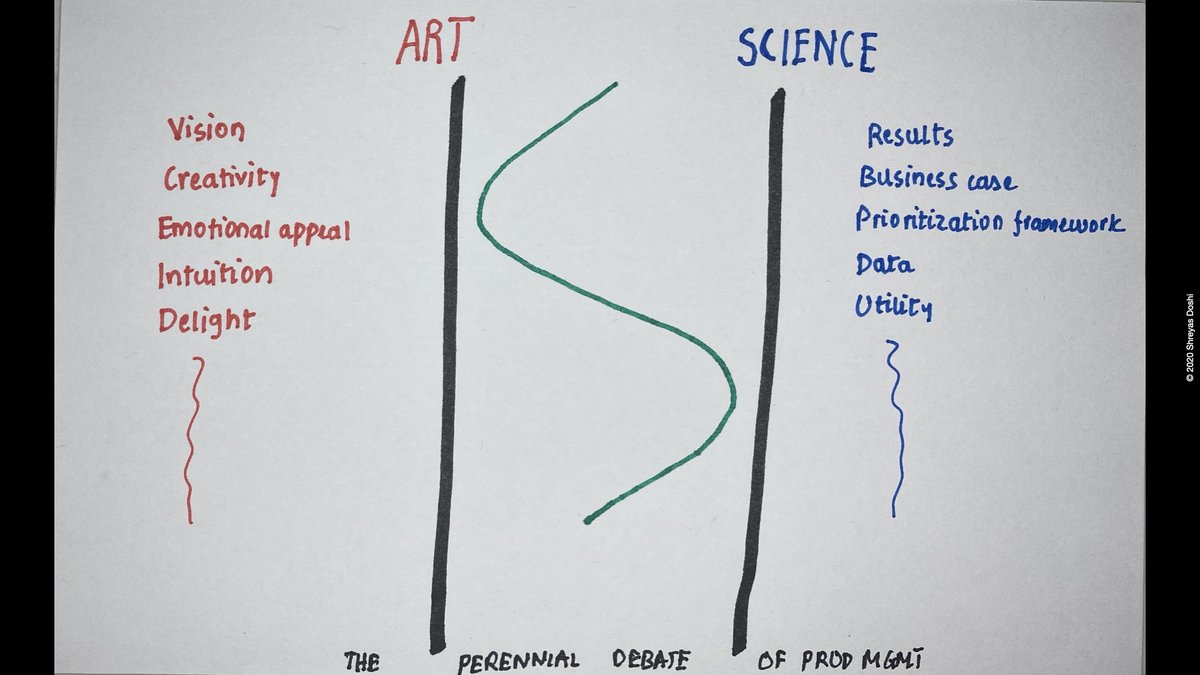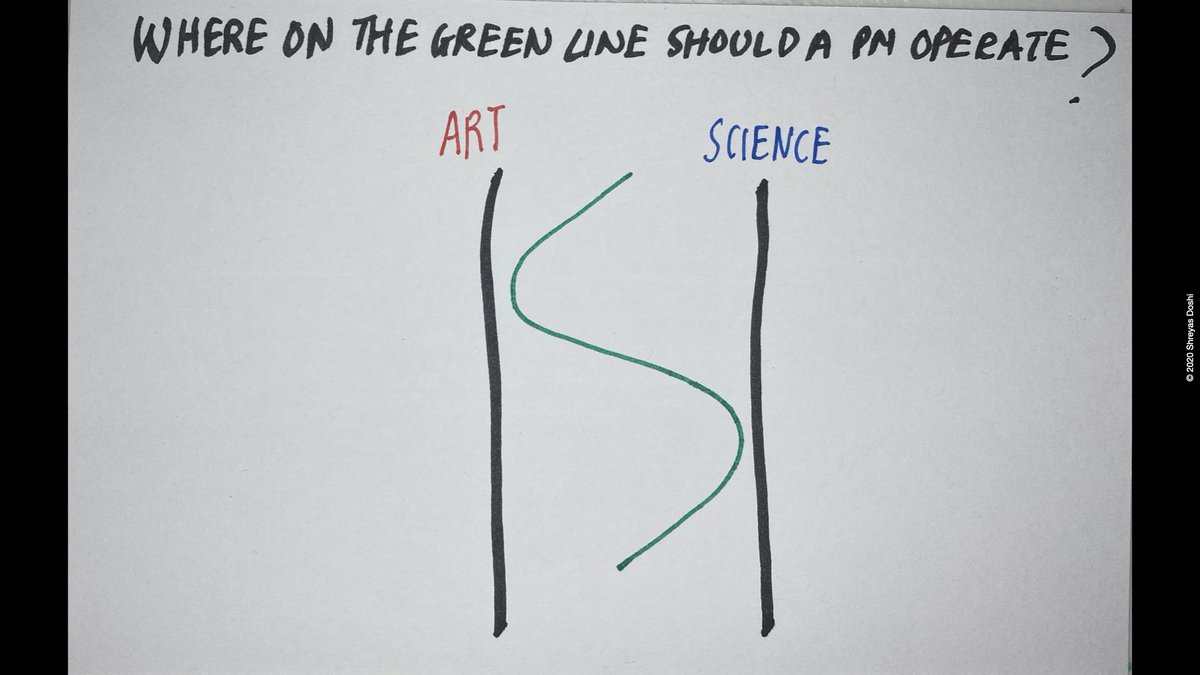
Product leader anti-patterns (and resulting problems)👇🏾
First, a quick recap:
3 types of product leaders
The Operator
The Craftsperson
The Visionary
Think of them as hats rather than types, if you wish.
Product leaders can (and do) wear multiple hats.
But most usually have a primary or preferred hat.
Ref:
3 types of product leaders
The Operator
The Craftsperson
The Visionary
Think of them as hats rather than types, if you wish.
Product leaders can (and do) wear multiple hats.
But most usually have a primary or preferred hat.
Ref:
https://twitter.com/shreyas/status/1375491623308550144
Note: There is no "one right" type or hat. Context matters most here.
It's useful to know these anti-patterns so we can spot them in ourselves, in the leaders we might hire or manage, in the leaders we might work for.
Can't fix what we don't see.
With that, the anti-patterns👇🏾
It's useful to know these anti-patterns so we can spot them in ourselves, in the leaders we might hire or manage, in the leaders we might work for.
Can't fix what we don't see.
With that, the anti-patterns👇🏾
1/
The Operator who values the CEO’s appreciation more than anything else
Resulting problems:
- subpar decision-making
- constant whiplash for team*
* because the Operator will ask the team to do whatever the CEO wants this week / month / quarter
The Operator who values the CEO’s appreciation more than anything else
Resulting problems:
- subpar decision-making
- constant whiplash for team*
* because the Operator will ask the team to do whatever the CEO wants this week / month / quarter
2/
The Operator who thinks s/he is a strategy genius but is not
Resulting problems:
- solid execution of bad strategy
- frustrating for Craftspeople*
* because the Craftspeople on the team know it is bad strategy, but can’t do much due to the Operator’s reality distortion field
The Operator who thinks s/he is a strategy genius but is not
Resulting problems:
- solid execution of bad strategy
- frustrating for Craftspeople*
* because the Craftspeople on the team know it is bad strategy, but can’t do much due to the Operator’s reality distortion field
3/
The Craftsperson who optimizes for the craft much more than impact
Resulting problems:
- good outputs, so-so outcomes
- slower product velocity*
* because of blanket demands for perfection everywhere
The Craftsperson who optimizes for the craft much more than impact
Resulting problems:
- good outputs, so-so outcomes
- slower product velocity*
* because of blanket demands for perfection everywhere
4/
The Craftsperson who has not yet learned how to teach the craft or delegate it
Resulting problems:
- Operators on the team struggle
- even minor decisions get bottlenecked on the Craftsperson's availability
The Craftsperson who has not yet learned how to teach the craft or delegate it
Resulting problems:
- Operators on the team struggle
- even minor decisions get bottlenecked on the Craftsperson's availability
5/
The Visionary who does not appreciate the value of structure & organization
Resulting problems:
- very difficult to scale
- general execution confusion
The Visionary who does not appreciate the value of structure & organization
Resulting problems:
- very difficult to scale
- general execution confusion
6/
The Visionary who looks down on less visionary team members
Resulting problems:
- low psychological safety
- those who can leave, do
The Visionary who looks down on less visionary team members
Resulting problems:
- low psychological safety
- those who can leave, do
While these anti-patterns should usually be concerning, that doesn't mean that it must always be the company's highest priority to fix a given anti-pattern immediately
That said, priority should not stop us from *recognizing* the problems, whether they are within us or elsewhere
That said, priority should not stop us from *recognizing* the problems, whether they are within us or elsewhere
I hope this thread helps clarify & contextualize situations you may have seen before or will see in the future.
Again, context matters most.
So use these anti-patterns as guideposts not as definitive truths.
Best of luck👍🏾
Again, context matters most.
So use these anti-patterns as guideposts not as definitive truths.
Best of luck👍🏾
Back to the top of this thread:
https://twitter.com/shreyas/status/1385408214036926466
• • •
Missing some Tweet in this thread? You can try to
force a refresh




